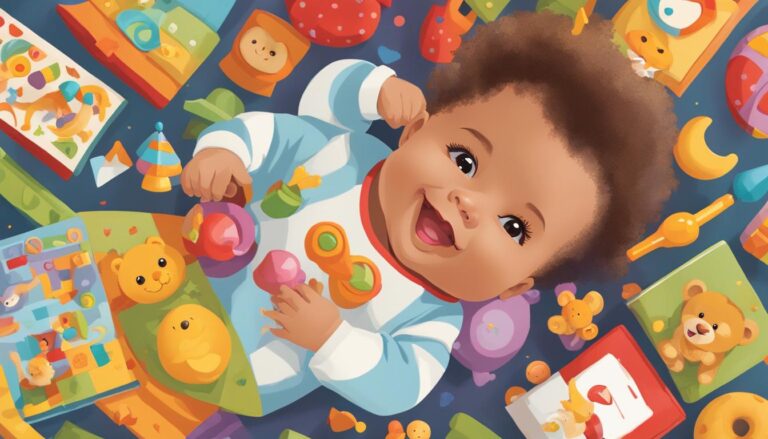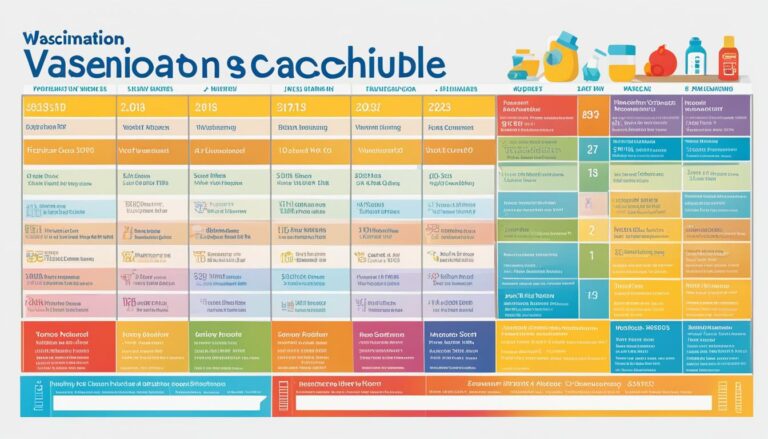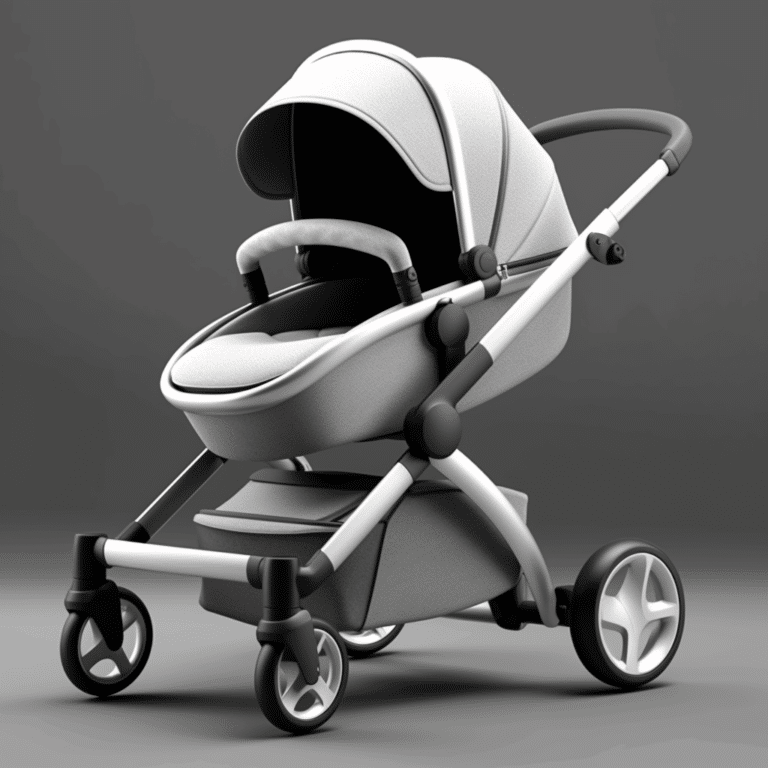Essential Newborn Care Tips for Parents
Newborn Care Tips Caring for a newborn baby requires attention to various aspects of their well-being. As a new parent, it’s natural to feel overwhelmed and unsure about how to navigate this exciting but challenging journey. From bonding with your baby to ensuring their safety and meeting their basic needs, here are some essential tips and advice to help you care for your precious newborn.
Key Takeaways:
- Bonding is crucial for your baby’s emotional and cognitive development. Spend quality time, engage in skin-to-skin contact, and interact with your newborn.
- Feeding frequency and recognizing hunger cues are important for your baby’s proper nutrition. Breastfeed or use formula every 1-3 hours and look for signs of hunger like mouth opening and head turning.
- Regular diaper changes are necessary to keep your baby comfortable and prevent diaper rash. Expect at least 3-4 wet diapers per day and change them promptly.
- Newborns need plenty of sleep for their growth and development. Establish a bedtime routine and sleep when your baby sleeps.
- When your baby gets fussy or cries, soothe them using the “5 S’s” technique: swaddling, side or stomach positioning, shushing, swinging, and sucking on a pacifier.

Remember to sponge bathe your baby before their umbilical cord stump falls off and then continue with 1-2 baths per week. Ask for support, take care of your own well-being, and reach out to loved ones if you’re struggling emotionally. Lastly, ensure your baby’s safety by following infant safety guidelines, such as preventing falls and providing a safe sleep environment.
By incorporating these tips into your newborn care routine and seeking assistance when needed, you can confidently provide the best care for your baby. Enjoy this precious time with your little one and cherish the moments as they grow.
The Importance of Bonding with Your Baby
Building a strong bond with your baby is essential for their overall growth and happiness. When you bond with your newborn, you are creating a secure attachment that lays the foundation for their emotional and cognitive development. Research has shown that babies who have a strong bond with their caregivers are more likely to have better relationships, higher self-esteem, and improved social skills later in life.
One of the most effective ways to bond with your baby is through skin-to-skin contact. This simple act of holding your baby against your bare chest has numerous benefits. It helps regulate their body temperature, stabilizes their heart rate and breathing, and releases hormones that promote feelings of love and attachment. Skin-to-skin contact also encourages breastfeeding and helps establish a strong breastfeeding relationship between you and your baby.
Another way to strengthen the bond with your baby is through interactive play and talking. Engage in activities that stimulate their senses, such as playing with toys, singing songs, and making funny faces. Talk to your baby using a soothing and comforting voice, and respond to their coos and babbles. These interactions not only promote language development but also create a sense of security and trust between you and your little one.
Quote:
“Bonding with your baby is a lifelong journey that starts from the moment they are born. It is a continuous process of nurturing and building a strong connection that will shape their future. Take the time to bond with your baby every day, and cherish these precious moments as they grow up so fast.” – Anonymous
In summary, bonding with your baby is an integral part of their early development. Through skin-to-skin contact, interactive play, and open communication, you can establish a strong and loving connection with your newborn. Remember, building a bond takes time and patience, so enjoy these precious moments as you embark on this beautiful journey of parenthood.
| Benefits of Bonding | Ways to Bond |
|---|---|
|
|
Feeding Your Newborn Baby
Feeding your baby is an important aspect of newborn care that requires attention and responsiveness. Whether you choose to breastfeed or use formula, ensuring your baby receives adequate nutrition is crucial for their growth and development.
Breastfeeding
If you choose to breastfeed, it is recommended to initiate breastfeeding within the first hour after birth. This promotes bonding and provides essential nutrients and antibodies for your baby’s immune system. Remember to find a comfortable position, support your baby’s head and neck, and ensure a proper latch.
It’s important to breastfeed frequently, allowing your baby to nurse on demand. This helps establish a good milk supply and meets their nutritional needs. Look for hunger cues such as rooting, lip smacking, and hand-to-mouth movements. A general guideline is 8-12 feeding sessions in a 24-hour period.
Formula Feeding
If you decide to use formula, consult your healthcare provider for guidance on choosing the right formula for your baby. Follow the instructions on the package for preparing and storing formula. It’s crucial to maintain cleanliness and hygiene when handling formula and feeding equipment.
Like breastfeeding, formula feeding should be done on demand. Pay attention to your baby’s hunger cues and offer the bottle when they show signs of hunger. It’s important to hold your baby in an upright position, supporting their head and neck. Allow them to feed at their own pace, pausing for burping as needed.
Regardless of the feeding method you choose, always ensure that your baby is getting enough milk or formula. Regular weight gain, wet diapers, and contentment after feeding are positive signs of adequate nutrition.
Remember, feeding time is not just about nourishment but also an opportunity for bonding and creating a nurturing connection with your baby. Enjoy this precious time together and seek support from a lactation consultant or healthcare provider if you encounter any challenges or concerns.
| Breastfeeding | Formula Feeding |
|---|---|
| Initiate breastfeeding within the first hour after birth. | Consult healthcare provider for guidance on choosing the right formula. |
| Breastfeed on demand, 8-12 feeding sessions in a 24-hour period. | Feed formula on demand, following hunger cues. |
| Find a comfortable position and ensure a proper latch. | Hold baby in an upright position, supporting head and neck. |
| Look for hunger cues like rooting, lip smacking, and hand-to-mouth movements. | Pay attention to baby’s hunger cues. |
| Enjoy the bonding experience with your baby. | Use feeding time as an opportunity for bonding. |
Diapering Tips for Newborns
Proper diapering is essential for your baby’s comfort and hygiene. Here are some helpful tips to ensure you keep your newborn clean and prevent diaper rash:
- When changing your baby’s diaper, make sure you have all the necessary supplies within reach: clean diapers, wipes, diaper rash cream, and a changing mat or clean towel.
- Gently clean your baby’s bottom with mild baby wipes or warm water and a soft cloth. Be thorough, but avoid excessive wiping as it can irritate the skin.
- To prevent diaper rash, allow your baby’s skin to air dry before putting on a fresh diaper. You can also use a soft towel to gently pat the skin dry.
- Apply a thin layer of diaper rash cream to protect your baby’s skin from irritation and inflammation. Look for a cream that contains zinc oxide, which acts as a barrier against wetness.
Diapering Tips
It’s important to monitor your baby’s diaper to ensure they are adequately hydrated. Generally, newborns should have at least 3-4 wet diapers per day. If you notice your baby’s diaper is consistently dry, it may be a sign of dehydration, and you should consult your pediatrician.
“Keeping your baby’s diaper area clean and dry is crucial for preventing diaper rash. Change your baby’s diaper frequently, ideally every 2-3 hours, or immediately after bowel movements. By maintaining good diapering practices, you can help keep your baby happy, comfortable, and free from discomfort.”
Here’s a table to summarize the key points for proper diapering:
| Diapering Tips for Newborns |
|---|
| Have all supplies ready before changing the diaper |
| Gently clean your baby’s bottom with mild wipes or warm water |
| Allow the skin to air dry before putting on a fresh diaper |
| Apply a thin layer of diaper rash cream to protect the skin |
| Monitor diaper wetness to ensure adequate hydration |
| Change diapers frequently, every 2-3 hours or after bowel movements |
By following these diapering tips, you can keep your baby clean, comfortable, and free from diaper rash. Remember, every baby is unique, so if you have any concerns or questions, don’t hesitate to consult your pediatrician for professional guidance.
Understanding Newborn Sleep Patterns
Understanding your newborn’s sleep patterns can help create a more peaceful and restful environment for both of you. Newborns sleep for shorter periods, typically 2-4 hours at a time, and their sleep is often divided into short naps throughout the day and night. It’s important to have realistic expectations about your baby’s sleep and remember that it will gradually become more predictable over time.
During the first few weeks, your baby may have difficulty differentiating between day and night, resulting in longer periods of wakefulness at night. To help establish a sleep routine, expose your baby to natural light during the day, and keep the environment calm and dimly lit at night. Creating a soothing bedtime routine can also signal to your baby that it’s time to sleep, such as a warm bath, gentle massage, and lullabies.
When your baby shows signs of tiredness, such as rubbing their eyes, yawning, or becoming fussy, it’s important to respond promptly. Place your baby in a safe sleeping environment, such as a crib or bassinet, on their back to reduce the risk of Sudden Infant Death Syndrome (SIDS). Use a firm mattress, remove any loose bedding or toys, and ensure that the room temperature is comfortable for your baby.
| Age | Total Sleep Time | Nap Frequency | Recommended Sleep Environment |
|---|---|---|---|
| Newborn (0-3 months) | 14-17 hours | Multiple short naps | Safe crib or bassinet |
| 3-6 months | 12-16 hours | 3-4 naps | Crib or bassinet in a quiet room |
| 6-9 months | 12-15 hours | 2-3 naps | Crib or bassinet in a dark, quiet room |
Remember, every baby is unique, and their sleep patterns may vary. It’s important to find what works best for you and your baby and be patient as you navigate this new chapter together.
Soothing Techniques for a Fussy Baby
Soothing a fussy baby requires using effective techniques tailored to their needs. As a parent, it’s important to remember that each baby is unique and may respond differently to soothing methods. Here are some proven techniques that can help calm a fussy baby:
- Swaddling: Wrapping your baby snugly in a soft blanket can provide a sense of security and mimic the feeling of being in the womb. It can help soothe your baby and promote better sleep.
- Side or stomach positioning: Gently positioning your baby on their side or stomach while holding them can provide comfort and ease their fussiness. Always remember to place your baby on their back to sleep to reduce the risk of SIDS.
- Shushing: Creating a constant “shushing” sound, like the noise heard in the womb, can help your baby feel calm. You can use a white noise machine, a fan, or even your own voice to produce a gentle shushing sound.
- Swinging: Many babies find rhythmic motion soothing. You can try rocking them in your arms, using a baby swing, or going for a gentle walk in a stroller or carrier.
- Sucking on a pacifier: Sucking is a natural reflex for babies and can help them feel calm and secure. Offering a pacifier can provide comfort and help distract your baby from their fussiness.
Remember, it may take some trial and error to find the techniques that work best for your baby. Pay attention to their cues and adjust your soothing methods accordingly. Additionally, always ensure your baby is safe and comfortable during these soothing techniques.
Expert Tip: The Importance of Responsive Care
“Responsive care means paying attention to your baby’s signals and responding promptly and lovingly. By doing so, you can build a strong bond with your baby and help them feel secure.”
– Dr. Sarah Johnson, Pediatrician
It’s essential to provide responsive care to your fussy baby. By being attentive to their needs and responding promptly, you can help them feel safe, loved, and comforted. Responsive care forms the foundation for building a strong parent-child bond and promoting healthy emotional development.
Stay patient and flexible as you explore different soothing techniques. Remember that every baby is unique, and what works for one may not work for another. With time and practice, you will discover the methods that bring comfort and calmness to your fussy baby.
| Technique | Benefits |
|---|---|
| Swaddling | Provides a sense of security and promotes better sleep |
| Side or stomach positioning | Calms your baby and eases fussiness |
| Shushing | Mimics the comforting noise heard in the womb |
| Swinging | Soothes your baby with rhythmic motion |
| Sucking on a pacifier | Provides comfort and distraction |
Bathing Your Newborn Safely
Bathing your newborn is an important part of their hygiene routine that necessitates gentle handling and attention to safety. Here are some tips to ensure a safe and enjoyable bathing experience for both you and your baby:
Gather the essentials
- Choose a warm and quiet room where you can comfortably bathe your baby.
- Gather all necessary bathing supplies, including a baby bathtub or sink, mild baby soap or cleanser, soft washcloths, towels, clean clothes, and a diaper.
- Fill the baby bathtub or sink with warm water, ensuring the water temperature is around 100°F (37°C). Test the water with your elbow or a bath thermometer to avoid scalding your baby.
Handle with care
When bathing your newborn, it’s essential to handle them gently and support their head and neck. Follow these steps for a safe bath:
- Undress your baby and wrap them in a towel, leaving only the area to be washed exposed.
- Dip the washcloth into the warm water and gently clean your baby’s face, starting from the forehead and moving down to the chin. Use a separate washcloth for each area to prevent the spread of germs.
- Wash your baby’s body, starting with the neck and working your way down to the feet, paying extra attention to the diaper area.
- Rinse your baby with warm water using a cup or your hands, making sure to remove all soap residue.
- Wrap your baby in a dry towel, patting them gently to dry their skin.
After the bath
After bathing, it’s essential to take additional steps to ensure your baby’s safety and comfort:
- Carefully clean and dry the umbilical cord stump, if it hasn’t fallen off yet, by gently wiping it with a clean cotton ball or swab dipped in rubbing alcohol.
- Apply a moisturizing baby lotion or oil to prevent dry skin. Avoid using powders, as they can irritate your baby’s lungs if inhaled.
- Dress your baby in clean, comfortable clothes and diaper them.
Bathing your newborn can be a special bonding time for both of you. Remember to never leave your baby unattended during bath time, as accidents can happen in an instant. With proper care and attention to safety, bath time will become a cherished part of your daily routine.
Seeking Support as a New Parent
As a new parent, it’s essential to prioritize your well-being and seek support from your loved ones. Caring for a newborn can be physically and emotionally demanding, and having a strong support system can make a world of difference. Here are some important tips on how to seek support as a new parent:
1. Reach out to your partner:
Your partner is your teammate in this parenting journey. Communicate openly about your needs, share responsibilities, and find ways to support each other. Remember, you’re in this together, and working as a team will make the experience less overwhelming.
2. Lean on family and friends:
Don’t hesitate to turn to your family and friends for help. Whether it’s for a short break, assistance with household chores, or simply someone to talk to, your loved ones can provide the support you need. Reach out and accept help when it’s offered—it takes a village to raise a child.
3. Join a parenting group:
Connecting with other new parents who are going through similar experiences can be incredibly valuable. Join a local parenting group or seek online communities where you can share tips, ask questions, and receive support from those who understand what you’re going through.
Remember, self-care is essential. Make time for yourself, even if it’s just a few minutes each day to relax and recharge. Take advantage of any opportunity to rest, prioritize your well-being, and seek support when needed. By nurturing yourself, you’ll be better equipped to provide the best care for your newborn baby.
| Support Tips | Benefits |
|---|---|
| 1. Reach out to your partner: | Sharing responsibilities and communicating openly strengthens your bond as parents. |
| 2. Lean on family and friends: | They can provide practical help, emotional support, and a sense of community. |
| 3. Join a parenting group: | Connecting with other new parents helps in sharing experiences and gaining valuable insights. |
Seeking support is not a sign of weakness; it’s a sign of strength and self-awareness. Embrace the fact that parenting can be challenging and that you don’t have to go through it alone. By nurturing yourself and building a support network, you’ll be able to navigate the ups and downs of being a new parent with confidence and joy.
Ensuring Newborn Safety
Prioritizing your newborn’s safety involves following essential guidelines to create a secure environment for them. Here are some important tips to help keep your baby safe:
Create a Safe Sleep Environment
When it comes to sleep, it’s important to provide a safe space for your newborn. Follow these guidelines:
- Always place your baby on their back to sleep, on a firm and flat mattress, and in a crib or bassinet that meets safety standards.
- Remove any soft bedding, pillows, stuffed animals, or bumper pads from the sleep area to reduce the risk of suffocation or sudden infant death syndrome (SIDS).
- Ensure the crib bars are spaced no more than 2 3/8 inches apart to prevent your baby from getting trapped.
Prevent Falls and Accidents
As your baby grows and becomes more mobile, it’s important to take measures to prevent falls and accidents:
- Never leave your baby unattended on a changing table, bed, or any other elevated surface where they could roll off.
- Keep hazardous objects, such as sharp objects, cleaning supplies, and choking hazards, out of your baby’s reach.
- Install safety gates at the top and bottom of stairs to prevent your baby from crawling or falling down.
Practice Safe Bathing
Bathing your newborn requires extra caution to ensure their safety:
- Always test the water temperature before placing your baby in the bath. The water should be comfortably warm, around 100°F (38°C).
- Support your baby’s head and neck at all times and never leave them unattended in the bath, even for a few seconds.
- Keep all bath products within reach, so you don’t have to leave the baby’s side during bath time.
Use Proper Car Seat Safety
Whenever you travel with your newborn in a vehicle, it’s crucial to follow car seat safety guidelines:
- Use a rear-facing car seat and securely install it in the back seat.
- The car seat should be at a 45-degree angle to support your baby’s head and neck.
- Use the harness straps correctly, ensuring they are snug and positioned at or below your baby’s shoulders.
By implementing these safety measures and guidelines, you can help protect your newborn and provide a secure environment for their growth and development.
| Infant Safety Checklist |
|---|
| Always place your baby on their back to sleep. |
| Remove any soft bedding, pillows, or stuffed animals from the sleep area. |
| Use a crib or bassinet that meets safety standards. |
| Keep hazardous objects out of your baby’s reach. |
| Install safety gates at the top and bottom of stairs. |
| Test the water temperature before placing your baby in the bath. |
| Never leave your baby unattended in the bath. |
| Securely install a rear-facing car seat in the back seat. |
| Ensure the car seat harness is correctly positioned and snug. |
Conclusion
Caring for your newborn baby requires patience, knowledge, and support, but the rewards are immeasurable. As a new parent, it’s normal to feel overwhelmed and unsure at times, but with the right guidance, you can confidently navigate this journey. Remember, every baby is unique, and what works for one may not work for another. It’s essential to adapt these tips to suit your baby’s individual needs and preferences.
Bonding with your baby is crucial for their emotional and cognitive development. Spend quality time with your little one, engage in skin-to-skin contact, talk to them, and play with them. These simple actions create a strong connection between you and your baby, fostering a sense of security and trust.
Newborn Care Tips
Feeding your newborn care tips is another important aspect of their care. Whether you choose to breastfeed or use formula, feed your baby frequently, approximately every 1-3 hours, and watch for hunger cues such as mouth opening, head turning, and restlessness. Meeting their nutritional needs is vital for their growth and overall well-being.
Diapering and sleep routines are also essential in ensuring your baby’s comfort and health. Change diapers regularly, keeping an eye out for wetness cues and signs of diaper rash. Establish a bedtime routine to help your baby sleep longer stretches, and remember to prioritize your own rest as well.
Swaddling
When your baby gets fussy or cries, the “5 S’s” technique can help soothe them. Swaddling, side or stomach positioning, shushing, swinging, and offering a pacifier are effective techniques to calm your little one and provide them with comfort.
As you bathe your baby, remember to do so safely. Sponge bathe them until their umbilical cord stump falls off, and then transition to tub baths. Use baby soap or shampoo sparingly, and apply a moisturizer after bathing to keep their skin hydrated.
Lastly, don’t be afraid to seek support. Being a new parent can be overwhelming, and it’s essential to take care of your own well-being. Reach out to your partner, family, or friends for assistance, and don’t hesitate to ask for help if you’re struggling emotionally.
Always prioritize your baby’s safety by following infant safety guidelines. Prevent falls by never leaving your baby unattended on surfaces where they could roll or fall. Keep small choking hazards out of their reach, and create a safe sleep environment by placing your baby on their back in a crib with a firm mattress and fitted sheet.
Remember, you are not alone on this journey. By applying these tips, seeking support when needed, and embracing the joys and challenges of parenthood, you can provide the best care for your precious newborn.
FAQ
Q: What are some important tips for caring for a newborn baby?
A: Some tips for caring for a newborn baby include bonding with your baby, feeding them frequently, changing diapers regularly, ensuring they get enough sleep, soothing them when they’re fussy, bathing them safely, seeking support as a new parent, and prioritizing their safety.
Q: Why is bonding with my baby important?
A: Bonding with your baby is crucial for their emotional and cognitive development. Spending quality time with your baby, engaging in skin-to-skin contact, talking to them, and playing with them helps build a strong parent-child relationship and promotes their overall well-being.
Q: How often should I feed my newborn?
A: Whether you’re breastfeeding or using formula, it’s important to feed your baby frequently, every 1-3 hours. Watch for hunger cues such as mouth opening, head turning, and restlessness to ensure your baby is getting enough nourishment.
Q: How often should I change my baby’s diapers?
A: Expect your baby to have at least 3-4 wet diapers per day. It’s important to change diapers regularly to prevent discomfort and diaper rash. Keep an eye out for signs of wetness and change the diaper promptly when needed.
Q: How much sleep does a newborn need?
A: Newborns need a lot of sleep, generally around 16-17 hours per day. It’s important to establish a bedtime routine to help them sleep longer stretches. Remember to sleep when your baby sleeps to ensure you also get enough rest.
Q: How can I soothe a fussy or crying baby?
A: You can use the “5 S’s” technique to soothe a fussy or crying baby. This technique includes swaddling, side or stomach positioning, shushing, swinging, and offering a pacifier for sucking. Experiment with these techniques to find what works best for your baby.
Q: How often should I bathe my newborn?
A: Sponge bathe your baby before their umbilical cord stump falls off, and then bathe them 1-2 times per week. Use baby soap or shampoo sparingly and apply a moisturizer after bathing to keep their skin hydrated.
Q: Where can I find support as a new parent?
A: Don’t hesitate to ask for help from your partner, family, or friends. Taking care of your own well-being is important, so reach out for support when you need it. There are also support groups, online communities, and parenting classes that can offer guidance and reassurance.
Q: What are some important safety measures for my newborn?
A: To ensure your newborn’s safety, never leave them unattended on a surface where they could fall. Keep small choking hazards out of reach and create a safe sleep environment by avoiding loose bedding and ensuring proper crib positioning.







